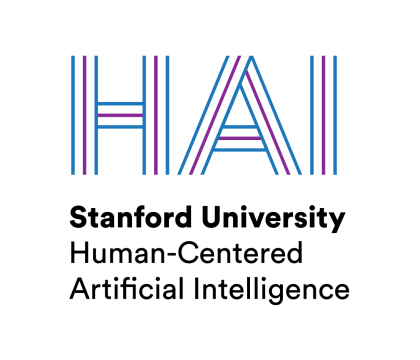2024 Hoffman-Yee Grant, Institute for Human-Centered Artificial Intelligence
The Institute for Human-Centered AI (HAI) is seeking to fund interdisciplinary Stanford project teams in support of the HAI research focus areas:
- Intelligence — research that aims to develop novel technologies inspired by the depth and versatility of human intelligence.
- Augment Human Capabilities — research that aims to design and create AI technologies that augment humans rather than replace them.
- Human Impact — research that aims to understand and guide the global societal impact of AI technologies for the greater good.
Proposals should address significant scientific, technical, or societal challenges requiring an interdisciplinary team to make significant progress. We are looking for bold approaches with the potential to achieve lasting solutions that positively impact the way AI is applied, developed or studied. HAI hopes to foster a culture of AI research in which technological advancements are inextricably linked to research about their potential societal impacts.
Each of the winning teams will receive up to $500,000 in year one with the opportunity to receive up to $2,000,000 more over the following two years. Teams will compete for year two and three funding through a presentation at a public symposium, private interview, and progress report. A subset of the teams will be selected for subsequent funding.
We expect to award six to eight grants.
Submission Guidelines
Letters of Intent (LOI) are due January 29, 2024 at 11:59pm PT. The LOI will be used by the review committee to select teams to submit full proposals (due March 25, 2024). Please see this page for full proposal requirements. Award recipients will be notified in June 2024.
LOIs and full proposals must be self-contained with no links to additional information and must observe the maximum length limits listed below.
LOI Outline and Format
Provide a non-technical summary of the proposed project (2 pages maximum including all information, 12 pt. font, at least ½” margins). In essence, explain what you want to do, why it is important, and who is on your team to make it happen. Please cover the following:
-
Problem statement and approach:
- What is the problem, and what are your approaches to and objectives in solving it?
- How is it done today, and what are the limits of current practice?
- What is new in your approach, and why do you think it will be successful?
- What parts of the HAI research focus areas (outlined above) does your project cover?
- HAI is working to develop a framework on how to conduct human-centered AI research. One way we think about it is here. In what ways, if any, does your research approach relate to this framework?
-
Impact:
- Who cares? If you succeed, what difference will it make?
- What are the risks and payoffs?
-
Team, budget, timeline:
- Who is on your team and how does their expertise help?
- Approximately how much will it cost? (a detailed budget is not required)
- High level timeline and 3-5 planned project milestones
Selection Criteria
To be considered, proposals must satisfy the project proposal guidelines. Both Letters of Intent (LOI) and full proposals will be evaluated based on the following criteria:
- Likelihood of the project initiating and sustaining meaningful interdisciplinary collaborations across the University and beyond. Projects are encouraged to span at least two of the three HAI focus areas.
- Boldness, ingenuity, and potential for the transformative impact of the proposed research, especially in comparison to research typically supported by existing funding mechanisms.
- Project’s capability to educate, train, and prepare the next generation of leaders to take on the AI challenges of the future.
We welcome proposals that come from students, staff, and Stanford faculty. Each proposal must have a Stanford faculty or researcher who qualifies as a Principal Investigator (PI) according to Stanford University Policy. A faculty member can be associated with (e.g., PI, co-PI, or senior personnel) no more than two proposals, but each faculty member may serve as the PI for only one proposal.
Six months after receipt of funds, each winning team will be expected to present their work at an HAI Directors meeting. Additionally, at the end of year-one, winning teams will be expected to present at a public symposium and meet with a selection committee for a private interview. Based on the symposium presentation and private interview, a subset of the teams will be selected for subsequent funding for the next two years.
Winning teams must agree to the terms for inventions, patents, and licensing set forth in the Stanford University Research Policy Handbook and be willing to participate in HAI activities including, but not limited to, research seminars, periodic workshops, and the review of proposals for future grant programs. Funded projects are expected to acknowledge the support of “the Stanford Institute for Human-Centered Artificial Intelligence (HAI)” on any publications, talks, presentations, or websites that result from or mention the research supported by this grant.
Proposals may request up to $500,000 for 12 months. Award amounts will be based on an analysis of a budget request. No indirect costs will be charged but an 8% infrastructure charge will be imposed on the award amount.
Funds may be used for salary and tuition support of faculty, graduate students, and other research staff, operating supplies, minor equipment items, prototyping expenses, imaging time, and travel directly associated with the research activity. Funds will not support general staff or administrative support or to pay consultants and contractors.
